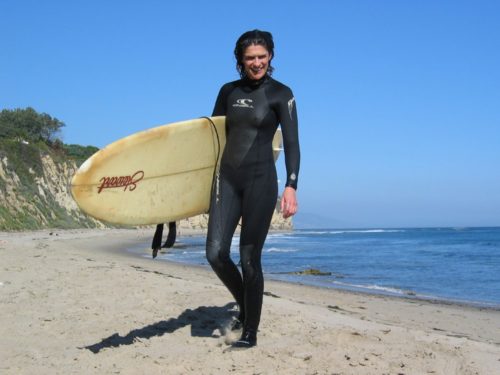Heal the Bay President Named to Coastal Commission As An Alternate Member

HTB chief Shelley Luce talks about her appointment and shares her philosophy about protecting our state’s most precious natural resource.
California is blessed with more than 1,100 miles of coastline. The ocean is a defining feature of our geography, our culture and our economy. We are proud of its beauty, and we depend on it for sustenance, for trade and tourism, and for our own recreation and relaxation.
I am now honored to help protect our coast by serving as an alternate to California Coastal Commission member Mark Vargas. Anthony Rendon, the Speaker of the California State Assembly, appointed me to the position earlier this month. Commissioners serve four-year terms.
As an alternate member, I will vote on matters at monthly Commission meetings any time Vargas cannot attend.
It’s long been a dream of mine to serve on the Coastal Commission because I understand how important the panel has been to preserving what makes California special. I’ve devoted my career to the coast, and I deeply understand the need to balance development, conservation, and public access on 1.5 million acres of land along California’s highly desirable coastline.
The California Coastal Act of 1976 created the Coastal Commission to “protect, conserve, restore, and enhance the environment of the California coastline.” The commission remains a powerful land-use authority that must approve changes to coastal land uses, or the local coastal plans that govern those changes. All development from single-family homes up to giant commercial or resort ventures must comply with the Coastal Act or be denied a permit to proceed.
The commission is charged with protecting coastal access and views for the public, as well as safeguarding Environmentally Sensitive Habitat Areas, including all wetlands.
The demand for new development in the coastal zone keeps the 12 volunteer commissioners and approximately 150 full time staff very busy, resolving complicated issues around rights of property owners and the general public.
The panel grapples with the legal, scientific, political and human complexities of how and where property owners can profit from our coastline, while protecting unique resources for the benefit of all Californians and visitors. The work is often contentious, with public hearings occasionally devolving into name-calling and accusations of backroom deal-making.
I will always listen with an open mind to all parties involved in a given matter. And I promise to always vote my conscience, placing the highest emphasis on the continued ecological health of our ocean and shorelines. I’m confident that my education and experience will guide me well when making tough decisions.
As a Ph.D. in environmental engineering, I know we must we rely on the best science to guide our decisions. As the leader of one of the state’s leading ocean protection groups, I know that education, transparency and public engagement are the best tools to build consensus around solving thorny issues.
Please email me at sluce@healthebay.org to share your thoughts about our coastline and how to best protect it.


